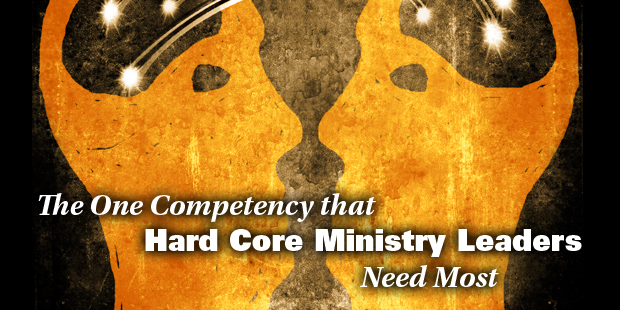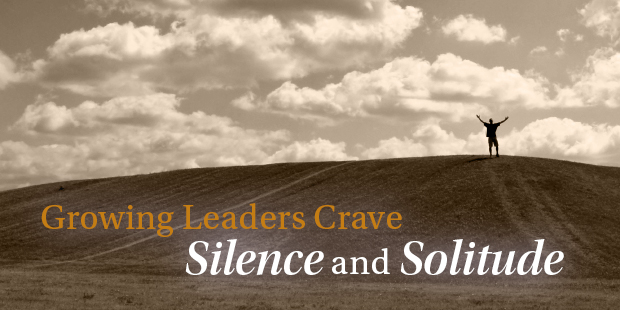
The One Competency That Hard Core Ministry Leaders Need Most
So you walk into a co-worker’s office to open up about something that’s bothering you.
Two minutes into the conversation all you start hearing from your colleague are phrases like:
- It’s not that bad
- Why don’t you just try X?
- Compared to what Josh is going through, that’s nothing.
- You shouldn’t feel that way.
- Want to hear about my problem?
Question: when you walk out of his office, how do you feel?
If you’re like me, you wish you never had brought it up. Wrong person to talk to, I’d say to myself on the way out.
And yet, if I don’t watch myself, that’s exactly what I do to other people all the time.
In fact, you might too. Almost every A type, driven leader will do that.
What’s lacking in that equation? Empathy.
Empathy is a critical leadership skill many driven people naturally lack. But the good news is, it’s learnable.
What’s Empathy Again?
If you’re a naturally empathetic person, you probably think this is a ridiculous question. But if you’re a driven type person (like me), you realize some of us just don’t know.
Dr. Brene Brown, a research professor at the University of Houston Graduate School of Social Work, defines empathy as feeling with people.
She says empathy consists of four things:
- Perspective taking. The ability to understand someone else’s perspective.
- Staying out of judgment. Not offering your editorial comment on someone else’s woes.
- Recognizing emotion in other people. The ability to perceive how others are feeling.
- Communicating that. Letting them know you see what they’re experiencing.
If you want more, this video short by Dr. Brene Brown is a super sharp three-minute primer on the difference between empathy and the much-less-helpful sympathy.
The good news is empathy, like almost all things related to emotional intelligence, is a skill that can be learned. And it should be a skill in every leader’s tool kit.
- Being empathetic as a leader can help you
- Understand how others in the organization or community are actually feeling
- Discern how your leadership positively or negatively impacts other people
- Pray better for others
- Become a far more approachable (and even likeable) leader
- Create a much better team culture
And that’s just scratching the surface.
5 Reasons Leaders Lack the Critical Skill of Empathy
So why is empathy so difficult to come by for some leaders? This is significant because understanding why you might naturally miss empathy is the first step toward learning that skill.
Here are 5 reasons leaders often lack the critical skill of empathy:
1. You’re a Fixer
Many leaders are fixers. I am by nature. Bring me a problem and it will take me approximately .3 seconds to start coming up with solutions.
Except that’s exactly the opposite of what many people need when they are trying to explain to you how they feel.
How do you overcome this? Listen…just listen (for far longer than you would naturally). And then ask the person whether they see any solutions. Chances are they do, and if they come up with the solution, they’ll own it better anyway. And if it’s too emotional in that first meeting, book a second meeting to come back to the subject again.
2. You’re All About the Mission
Again, this is a good thing. You should be all about the mission. You’re a leader.
But there are seasons where being all about the mission is actually an impediment to accomplishing it.
While you might gravitate toward helping someone get over the problem so you can get on with the task at hand, you might actually alienate them enough to lose them to the cause.
By waiting, listening, affirming and then moving through a situation more slowly, you give them time to move through their issue.
3. You’re Defensive
I hate to admit this, but as a young leader, I saw every problem as a threat to progress. I was so zealous to accomplish our mission (see above) that I didn’t have time for any problems.
It made me defensive. Far too defensive. In fact, any time I smelled conflict, issues or a potential roadblock, I would get defensive.
I remember a moment years ago where an elder pulled me aside and said “Whatever you do in this meeting, don’t be defensive.” That was a moment in time I’ll never forget. I sat there while we worked through a problem and didn’t try to defend myself or our mission.
And while I wasn’t empathetic to the person with the problem, I was at least neutral.
I was amazed at the difference it made. When I didn’t fight for myself or the mission, other people did. Funny what happens when you sit back and relax.
Just because someone has a problem doesn’t mean they’re opposed to your mission.
4. You Speak More Than You Listen
Empathy takes time. It just does.
Listening is key. And listening is far more difficult than speaking. Especially when you are driven by tasks and a sense of urgency.
If you listen 2-5 times more than you speak when you meet with people, you will be a far better leader.
Just try it.
5. You’re Reluctant to Affirm a Negative Emotion
Many driven leaders are afraid to affirm anything that stands in the way of the mission. I get that.
But what if affirming someone’s opposing emotion might actually be a key to accomplishing your mission.
Here’s an example. Someone stops you to complain about how loud the music was Sunday. Instead of saying “Well our decibel level is never beyond 95db and that’s acceptable in almost every other forum”, try this:
Oh, I’m sorry you found it so loud. You’re not alone. What part was the hardest for you?
It hurts my ears.
I would be upset if it hurt my ears too. I can see that.
Well…uh…thanks.
We have a reason for playing at the level we do. If you’d like to talk about it sometime I’d love that. But thank you for sharing that with me. I appreciate it. And I’m sorry it hurt your ears today.
How do you think that person feels after the conversation?
How do you feel?
Better.
While you may not have solved the issue, you’ve at least listened, empathized and tried to show that you care. And chances are in practicing the skill of empathy, you felt a genuine connection with the person who was complaining. Nobody loses in a situation like that.
And you’ve paved the way for the next conversation. Maybe you should turn the volume down or the audio was hotter than it normally is. Or maybe the answer is to hand out free ear plugs or direct people to seats where the music is quietest (sound is different in different parts of every room).
That’s a short primer on what I’ve learned and am still learning on empathy.
What are you learning? What’s tough for you to overcome if you’re not naturally empathetic?
And naturally empathetic people, what would you add to this conversation?
Read more from Carey here.



















